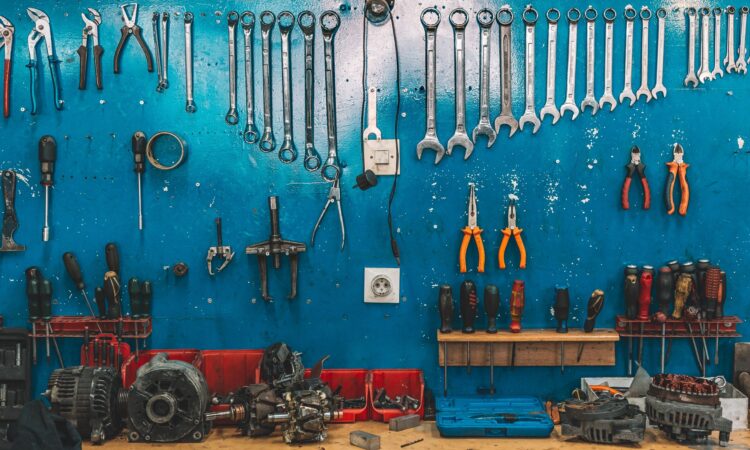
Running a successful automotive mechanic workshop requires more than just skilled technicians; it also demands the right tools. The automotive industry constantly evolves, and modern vehicles come with advanced technologies. While a scan tool is crucial in diagnosing electronic issues, a well-rounded workshop should be equipped with various other essential tools to ensure efficient and reliable service. So, this post will explore these vital tools every automotive mechanic workshop should have.
Basic Hand Tools
Basic hand tools are the foundation of any mechanic’s toolkit. These tools are versatile and essential for many tasks, from loosening and tightening bolts to removing and replacing various components. Some of the basic hand tools include:
Wrenches: Open-end and socket wrenches are crucial for turning nuts and bolts of different sizes.
Screwdrivers: A set of screwdrivers with various types and sizes of tips is essential for removing screws in different parts of a vehicle.
Pliers: Pliers are handy for gripping, bending, and cutting wires and hoses.
Ratchets and Sockets: Ratchets and sockets come in various sizes and are used for fastening or unfastening bolts and nuts efficiently.
Lifts and Jacks
Accessing the underside of a vehicle is a common requirement in automotive repair and maintenance. Vehicle lifts and jacks are indispensable tools for safely raising and supporting vehicles, allowing mechanics to work on the undercarriage, suspension, exhaust, and more. So, common types of lifts and jacks include:
Hydraulic Floor Jacks: These portable jacks can lift vehicles off the ground for maintenance or repairs.
Two-Post Lifts: Two-post lifts are commonly used in workshops and provide better stability for lifting heavier vehicles.
Four-Post Lifts: Four-post lifts are versatile and can be used for different types of vehicles, including cars and trucks.
Diagnostic Equipment
In addition to the automotive diagnostic scan tool, other diagnostic equipment pieces are essential for accurately pinpointing electrical, electronic, and mechanical issues. These tools provide mechanics with critical data to make informed decisions and perform effective repairs. So, important diagnostic equipment includes:
Multimeters: Multimeters measure voltage, current, and resistance, aiding in electrical troubleshooting.
Oscilloscopes: Oscilloscopes display electrical waveforms, helping diagnose sensor and circuit problems.
Pressure Gauges: Pressure gauges are essential for diagnosing issues related to fuel, oil, and hydraulic systems.
Air Tools
Air-powered tools are known for their speed and efficiency, making them ideal for various automotive tasks. These tools are powered by compressed air and include:
Impact Wrenches: Impact wrenches are used for quickly removing and installing lug nuts and bolts.
Pneumatic Drills: Pneumatic drills are essential for drilling holes and fastening components rapidly.
Air Ratchets: Air ratchets make fastening and unfastening bolts and nuts much faster and easier.
Safety Gear
Safety should always be a top priority in an automotive mechanic workshop. Mechanics deal with potentially hazardous situations daily, making safety gear indispensable. Essential safety gear includes:
Safety Glasses: Protect eyes from flying debris, chemicals, and dust.
Gloves: Gloves offer hand protection from sharp edges, hot surfaces, and chemicals.
Ear Protection: Ear protection safeguards hearing from the loud noises generated by power tools and machinery.
Appropriate Clothing: Wearing appropriate clothing, such as coveralls or shop aprons, helps keep clothes clean and safe from spills.
Conclusion
While an automotive diagnostic scan tool is vital for diagnosing electronic issues in modern vehicles, a well-equipped automotive mechanic workshop should have a diverse range of tools to address a variety of tasks efficiently and safely. Basic hand tools, lifts and jacks, diagnostic equipment, air tools, and safety gear are all essential components of a comprehensive toolkit. By investing in these tools, your workshop will be well-prepared to meet the challenges of today’s automotive industry and provide top-notch service to your valued customers.





